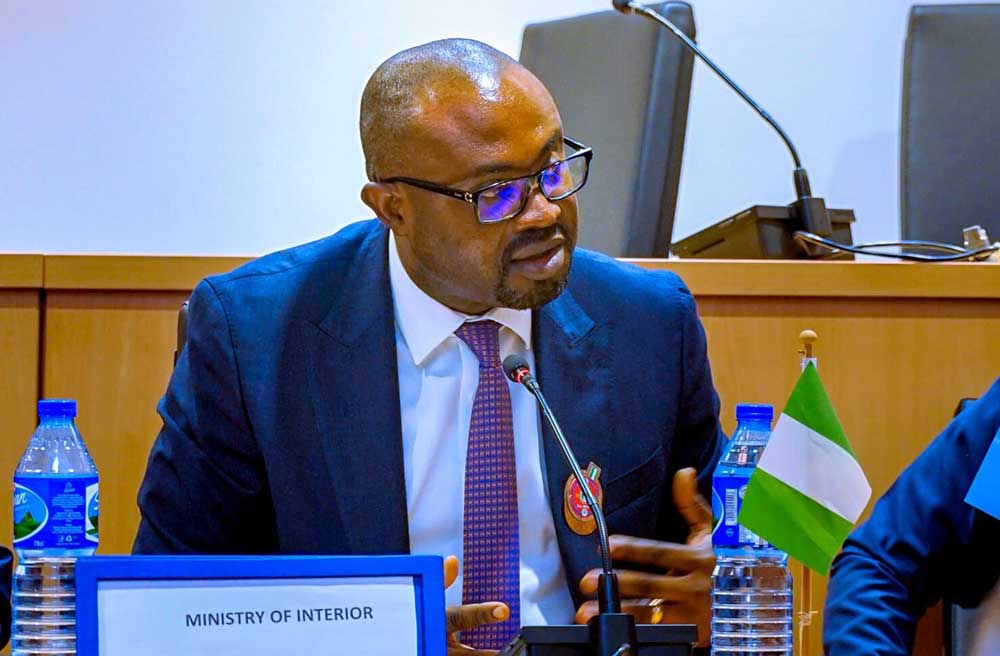The Federal Government has processed more than 14,000 visa applications in the first six weeks of implementing its new electronic visa (e-visa) system, according to Minister of Interior, Dr. Olubunmi Tunji-Ojo.
Speaking on Monday at a stakeholders’ workshop on immigration reforms held at the Nigeria Immigration Service headquarters in Abuja, Tunji-Ojo said the e-visa platform, launched on May 1, has begun yielding tangible results. He also announced that two additional digital platforms—the electronic Combined Expatriate Residence Permit and Aliens Card (e-CERPAC) and the electronic Temporary Work Permit (e-TWP)—will go live in the coming week.
“Within the first six weeks of the e-visa, we were able to process over 14,000 visa applications. That is a pass mark by any standard,” he said. “There are still a few hitches, but I assure you they’ll be resolved within the next one to two weeks.”
He disclosed that he had hosted several immigration and technical stakeholders at his residence the day before, as part of efforts to fine-tune the system.
“Even yesterday, Sunday, I had the CGIS, the DCG Visa, and our tech partners in my house. We worked for hours because innovation requires constant attention.”
Tunji-Ojo described the e-visa as more than a migration management tool, saying it has economic implications. “When people need visas and have to rely on connections with the minister or immigration officials, that’s not how a country grows,” he said. “We must ensure ease of access without compromising national security.”
He added that digitising immigration services contributes to broader goals, including improved border security. “We are not where we want to be yet, but there has been progress. We will keep investing in e-border governance and enhance surveillance along our borders.”
Addressing concerns about abuse of work permits, the minister said reforms have curtailed the misuse of Temporary Work Permits (TWP) to evade legal obligations tied to residence permits. “That era is over,” he said. “TWP is now automated, just like CERPAC.”
Tunji-Ojo also revealed that the elimination of manual archiving in passport application processes has saved Nigeria approximately ₦1 billion annually. The contract for physical documentation services has been terminated.
Speaking at the same event, Comptroller General of the Nigeria Immigration Service, Kemi Nandap, detailed the scope of the ongoing digital transformation. She said the e-visa regime includes new services such as e-CERPAC, Landing and Exit Cards, and digital TWP processes.
“Our digital solutions are designed to streamline procedures, enhance security, and improve the experience for travellers and stakeholders,” she said. “The e-visa platform enables users to apply online without visiting immigration offices. The e-CERPAC integrates residence permits into a digital format, and the digitised TWP reduces processing times and boosts efficiency.”
Nandap also noted that e-Gates have been installed at major airports, and the Command and Control Centre is fully operational to support these innovations.

